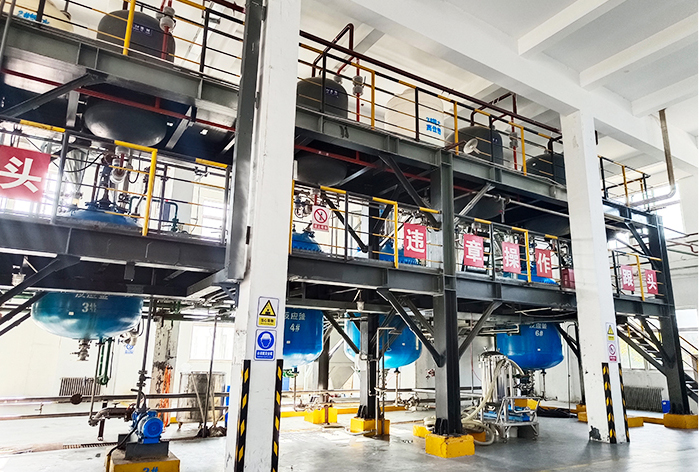
News
ágú . 15, 2024 04:25 Back to list
Exploring the Benefits and Applications of Sodium Polyaspartate in Various Industries and Fields
The Versatile Applications of Sodium Polyaspartate
Sodium polyaspartate (NaPA) is a biodegradable and eco-friendly polymer derived from aspartic acid. This compound belongs to the family of polyamino acids and has gained significant attention in various industries due to its unique properties and versatility. In this article, we will explore the characteristics, synthesis, and applications of sodium polyaspartate, highlighting its importance across multiple fields.
Characteristics and Properties
Sodium polyaspartate is a water-soluble polymer characterized by its ability to form complex structures and maintain stability in various environmental conditions. It exhibits excellent chelation properties, which enable it to bind with metal ions and minerals. This characteristic makes sodium polyaspartate an ideal candidate for applications that require efficient ion exchange processes. Additionally, its high product purity and non-toxic nature make it suitable for use in sensitive applications, including pharmaceuticals and food products.
The polymer is known for its outstanding dispersing capabilities, which help prevent the agglomeration of solid particles in suspension. This property is particularly valuable in industries like cosmetics, paints, and coatings, where maintaining consistency and preventing clumping is essential. Sodium polyaspartate's ability to function as a thickening agent and viscosity modifier further enhances its utility in these sectors.
Synthesis of Sodium Polyaspartate
The synthesis of sodium polyaspartate involves the polymerization of aspartic acid, which can be achieved through various methods, including aqueous solution polymerization or melt polymerization. The process typically involves the addition of sodium ions to neutralize the acid groups in the polymer chain, resulting in the formation of sodium polyaspartate. The choice of synthesis method can influence the molecular weight and properties of the final product, allowing for customization based on specific application requirements.
sodium polyaspartate

Applications in Various Industries
Sodium polyaspartate's unique properties lead to its use in a wide array of applications. In agriculture, it serves as an effective soil conditioner, enhancing water retention and nutrient availability. By improving soil structure, it contributes to healthier crop growth and increased yields while reducing the need for chemical fertilizers.
In the water treatment industry, sodium polyaspartate is utilized for its dispersing and chelating abilities. It effectively binds with calcium and magnesium ions, preventing scale formation in pipes and treatment equipment. This characteristic makes it an invaluable agent in cooling tower systems and boiler applications, where scale management is critical for efficient operation.
The cosmetic and personal care sectors also benefit from sodium polyaspartate's properties. It can be found in various formulations, including shampoos, conditioners, and moisturizing creams, where it acts as a thickener and stabilizer. Its gentle, non-irritating nature makes it suitable for sensitive skin products, appealing to consumers seeking safer alternatives.
In the realm of medicine, sodium polyaspartate is being explored for its potential use in drug delivery systems. Its biocompatibility and ability to encapsulate active pharmaceutical ingredients allow for targeted delivery, improving the efficacy of medications while minimizing side effects.
Conclusion
Sodium polyaspartate stands out as a remarkable polymer with a plethora of applications across diverse industries. Its eco-friendly nature, coupled with its outstanding functional properties, positions it as a key player in advancements from agriculture to personal care and pharmaceuticals. As industries continue to seek sustainable and efficient solutions, the relevance of sodium polyaspartate is likely to grow, paving the way for innovative uses and enhancements in product formulations. With ongoing research and development, the future of sodium polyaspartate looks promising, making it a polymer to watch in the years to come.
-
Polyaspartic Acid Salts in Agricultural Fertilizers: A Sustainable Solution
NewsJul.21,2025
-
OEM Chelating Agent Preservative Supplier & Manufacturer High-Quality Customized Solutions
NewsJul.08,2025
-
OEM Potassium Chelating Agent Manufacturer - Custom Potassium Oxalate & Citrate Solutions
NewsJul.08,2025
-
OEM Pentasodium DTPA Chelating Agent Supplier & Manufacturer High Purity & Cost-Effective Solutions
NewsJul.08,2025
-
High-Efficiency Chelated Trace Elements Fertilizer Bulk Supplier & Manufacturer Quotes
NewsJul.07,2025
-
High Quality K Formation for a Chelating Agent – Reliable Manufacturer & Supplier
NewsJul.07,2025
